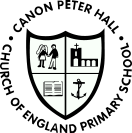From this Autumn 1 knowledge, children are able to compare other settlements, countries and continents throughout the year. Throughout the rest of the year, opportunities for topical geographical learning are planned through a critical thinking approach.
In order to plan a knowledge rich curriculum teachers are provided with Geography overviews that support the planning Geography. These are broken down into 6 key areas:
- Vocabulary
- Sequences of learning
- Intended outcomes
- Expert outcome
- Pre- task
- Resources and actions
From this teachers are able to create long term plans that clearly link to the skills identified in the Geography Lens and provide opportunities for field work in order to develop children’s geographical enquiry skills.
Further to this, a clear format for the teaching of geography and knowledge from the knowledge organisers has been created.
Teachers are expected to create knowledge organisers:
- This must be based on their project overview and medium term planning.
- These must be clearly organised in the sequence of learning.
- They must provide opportunities for dual cognition- images and text.
- Key vocabulary must be clearly defined with age appropriate language.
- Link their planning to the key areas of the Geography Lens.
- Provide opportunities for pupils to think critically about the validity of sources to and explore different perspectives on topical subjects where appropriate.
A typical lesson at Canon Peter Hall will include:
- The addressing of misconceptions identified in pre-learning tasks.
- Planned opportunities for retrieval practice at the start of every lesson to recall geographical knowledge and vocabulary through quizzing.
- Promote and teach age appropriate tier 2 and 3 vocabulary within every lesson.
- Use of inflatable globes to ensure all children have a concept of location and how to navigate the globe using key geographical language.
- References to the personalised world map to put the place of study in the context of the wider world.



